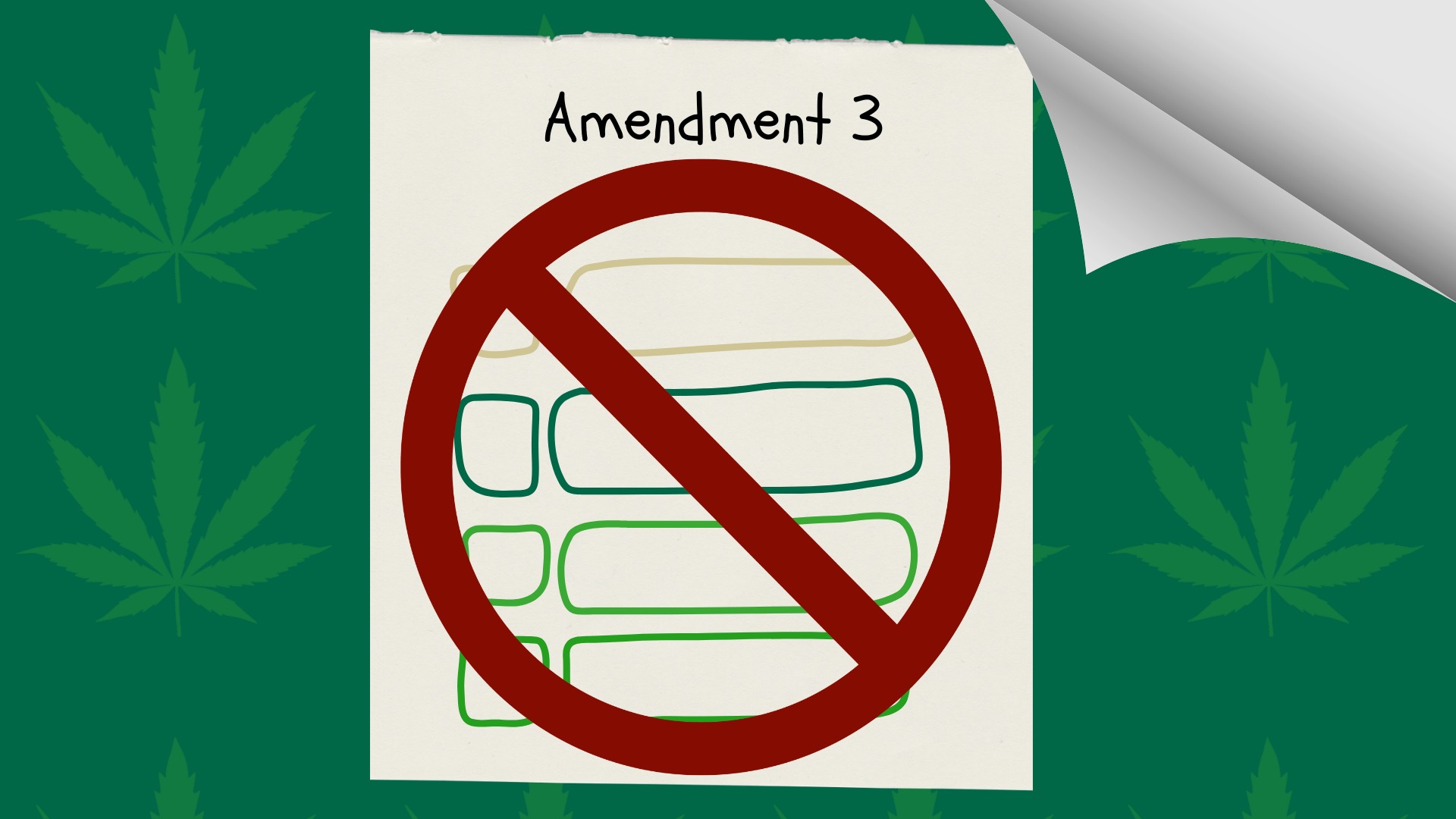USF students react to marijuana amendment not passing in Florida

Sam Kantrowitz, a junior mass communications major, said Amendment 3, which proposed the legalization of recreational marijuana in Florida, failing to pass earlier this month was a shock.
In high school, Kantrowitz had a classmate who died after taking a drug laced with fentanyl.
Kantrowitz said he voted in favor of the amendment because, if it had passed, it could have reduced the amount of marijuana laced with other drugs since sales would be regulated.
“By legalizing marijuana you know what you are getting is safe,” Kantrowitz said. “If people are using marijuana as medicine, and even in general if you are using it like alcohol, it should be regulated and tested. By legalizing it, that was part of the prioritization.”
Related: Abortion and marijuana amendments are pressing concerns for USF students – The Oracle
If it had been approved, Amendment 3 would have legalized recreational marijuana use for those 21 and over. Its failure to garner enough support in the election this month drew mixed reactions from students.
The amendment did not meet the 60% threshold to be adopted in Florida, only receiving 55.9% of the vote. In Hillsborough County, the amendment received almost 58% approval, according to the county’s Supervisor of Elections Office’s official results.
Kantrowitz said he thought the amendment would pass because of the potential benefits if it had been adopted in Florida.
“By legalizing it, you’re obviously decriminalizing it, so tiny arrests about possession are obviously going to go away,” Kantrowitz said. “Law enforcement could have prioritized major cases like murder, sexual assault any significant crime.”
Keegan Lolkus, an integrated public relations and advertising sophomore, said she voted against the amendment. However, she said she was surprised the amendment did not pass.
Related: Florida lawmakers talk political polarization at USF Tampa – The Oracle
Lolkus said she thinks an amendment to legalize recreational marijuana will be proposed again.
Florida law does not limit how soon a proposed amendment can be put up to vote after it fails.
Kantrowitz said if legislation is rewritten and clarified, he believes the amendment will pass in the future. He said campuses would then need to make a clear statement about how marijuana can be used on campus, including in dorms.
The USF Student Code of Conduct says alcohol can be consumed by those who are 21 or older in their dorm rooms with certain stipulations. Alcohol cannot be consumed in public areas, such as lounges and community kitchens.
Residents 21 or older can “consume alcohol in the presence of their underage roommate.” However, residents cannot have or drink “an open container when underage guests are present in the student room/apartment,” according to the policy.
Related: OPINION: Cheers to 18 – Lower the legal drinking age – The Oracle
USF is also a tobacco and smoke free campus, meaning smoking cigarettes, “lighting” marijuana and using electronic cigarettes is prohibited, according to USF’s Tobacco and Smoke Free Policy.
“My interpretation was, even if it did pass, you wouldn’t be able to light up on campus,” Kantrowitz said.
However, Lolkus said her major concern was if Amendment 3 had passed, driving under the influence would be a more common occurrence due to easier access to marijuana.
In the proposed amendment’s fourth section, it said driving or operating a vehicle under the influence of marijuana would be prohibited.
“It would be so easy to get high, and then get into a car and get into a major accident behind the wheel,” Lolkus said.
Lolkus said she thought the amendment would make it easier for those who are underage to “get their hands on it.”
“I’m glad it didn’t pass, but if it did, then it would not be surprising to me at all either,” Lolkus said.







